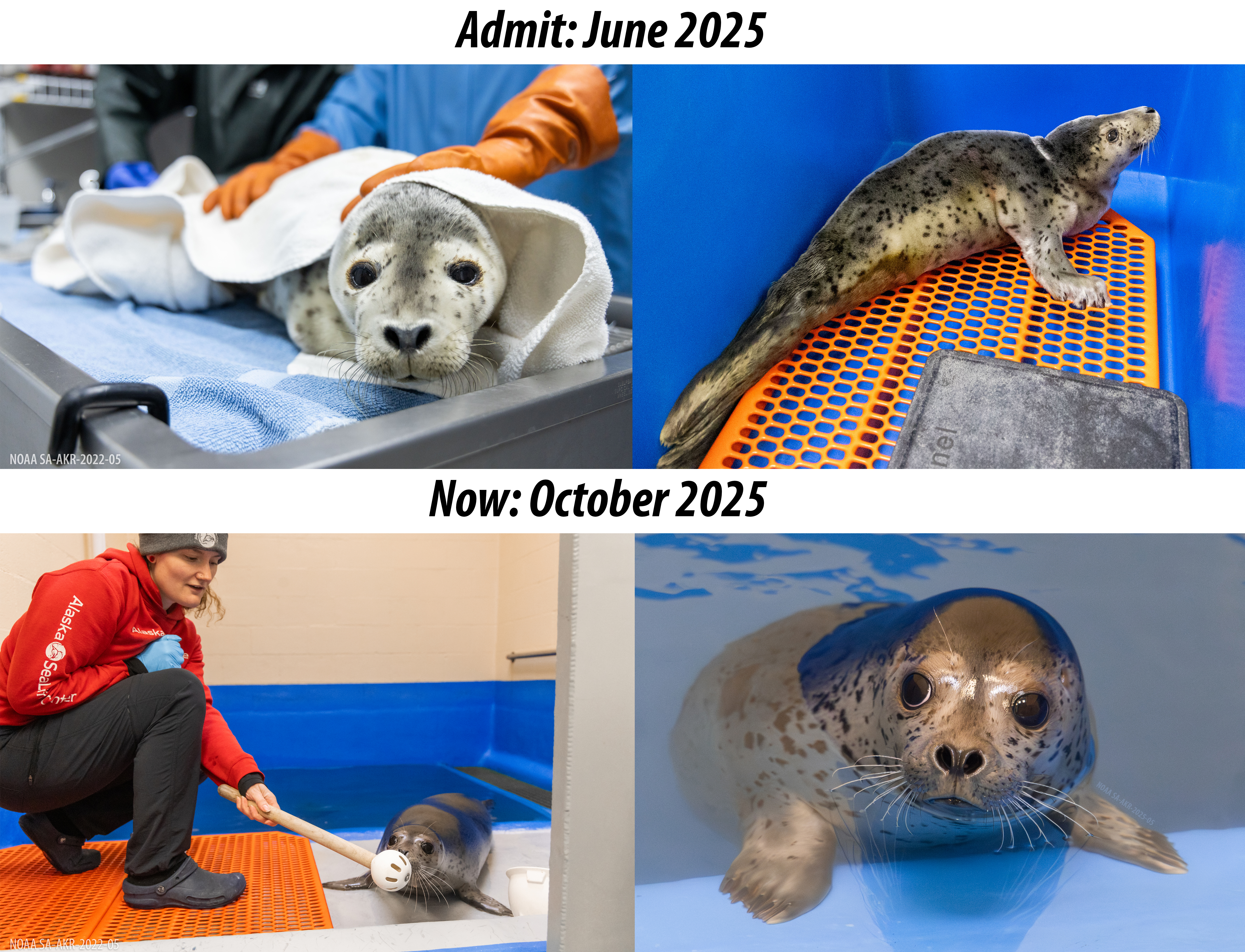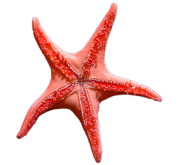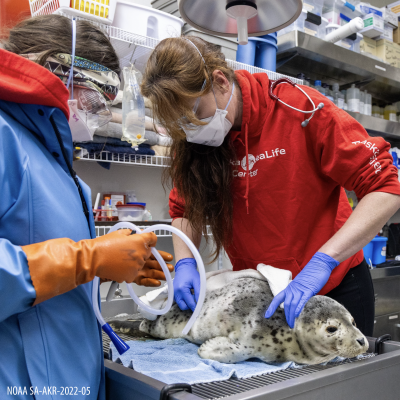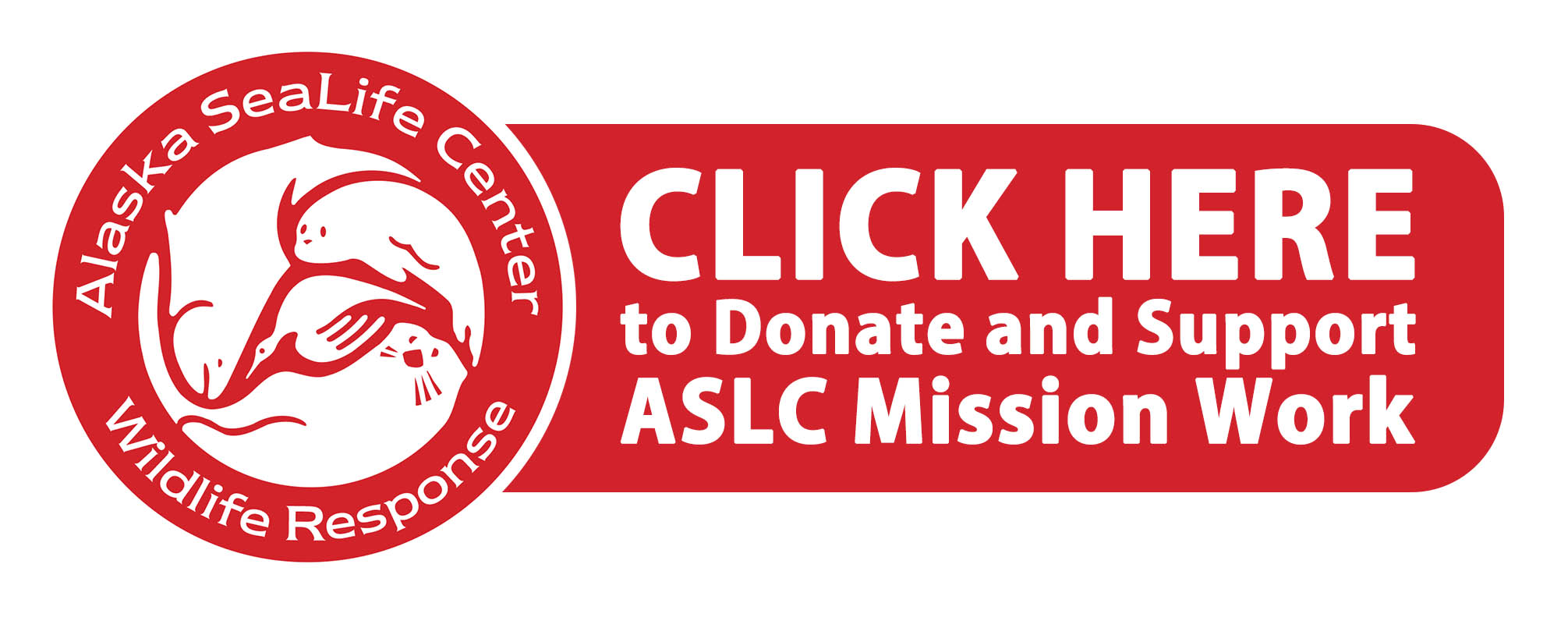Rare Rescue Patient: Spotted Seal Pup Gaining Strength at Alaska SeaLife Center October 16, 2025
The Alaska SeaLife Center admitted a unique patient to its Wildlife Response Program on June 16, 2025: a young male spotted seal pup from Nome, Alaska.
Fewer than ten spotted seals have ever been admitted to ASLC in the organization’s history. These Arctic seals are ice-associated animals, typically found along remote stretches of Alaska’s northern coastlines. Though they are commonly seen in these northern waters, recovering a stranded individual does not happen often.
A community member first spotted this spotted seal pup alone on a busy public beach near Nome, Alaska. Photos showed the pup was lethargic and extremely malnourished, and the sighting was quickly relayed through the ASLC’s 24-hour Stranded Marine Animal Hotline at 1-888-774-SEAL(7325).
ASLC contacted the National Oceanic and Atmospheric Administration (NOAA), which oversees seal strandings. After consultation with the local stranding agreement holder for the area, Nome's local tribal consortium, Kawerak Inc., and the Ice Seal Committee (ISC), the Alaska Native Organization that co-manages ice seals with NOAA, the decision was made to transport the animal to ASLC for urgent care.
Although the male pup was severely emaciated upon arrival, the presence of teeth and absence of a soft, white lanugo coat indicated he was not a newborn, likely around 3 to 4 weeks old. The ASLC wildlife response and veterinary teams have been treating him intensively since his arrival. He is now steadily gaining weight, eating well, and has been given the name “Kova.”
Responding to a stranded ice seal requires navigating both regulatory policy and respect for the Indigenous communities that rely on these animals for subsistence. In rescue situations involving Alaska’s four “ice seal” species (spotted, ringed, ribbon, and bearded), the ASLC follows a precautionary non-release policy developed by NOAA Fisheries and the ISC. Because ice seals transported to Seward for rehabilitation come from remote, culturally significant regions where they remain an essential food source, this policy eliminates the risk of disease transmission between ecosystems by a rescued animal. Therefore, even though Kova has recovered well so far, he will permanently remain in human care.
In the meantime, diagnostic testing and ongoing monitoring are helping us better understand diseases that may be affecting wild seal populations and contribute valuable information about his species. Placement discussions are ongoing to ensure he has the best possible long-term home as he continues to gain weight and improve his health.
As the only marine mammal rehabilitation facility in Alaska, the ASLC is proud to care for animals from remote regions of the state while working closely with the communities connected to them. Responses like this are made possible through strong partnerships with federal agencies, Tribal and co-management organizations, Indigenous leaders, community members, and more.
We remain committed to these relationships and to protecting the health of ice seal populations, which are vital to the local ecosystem and Alaska Native communities.
“We are deeply grateful to the Nome community,” said Wildlife Response Curator Jane Belovarac. “This pup has given us a valuable opportunity to learn and grow as we work to restore its health. Thanks to the support from Gay Sheffield with the UAF Marine Advisory Program, Charles Menadelook with Kawerak, Inc., and the Ice Seal Committee, we’re hopeful this animal will one day serve as an ambassador for the very waters it came from. This rescue wouldn’t have been possible without their collaboration.”
Call First!If you encounter a stranded or injured marine animal in Alaska, contact ASLC’s 24-hour Stranded Marine Animal Hotline at 1-888-774-SEAL(7325). Do not approach or attempt to move the animal.
The Alaska SeaLife Center’s Wildlife Response Program can only provide care for stranded and injured marine animals with help from corporate sponsors and individual donors. Supporters can help provide vital care for marine animals in need by donating at www.alaskasealife.org/donate.
The ASLC acknowledges the ongoing generous support of the Wildlife Response Program from supporters like ConocoPhillips Alaska, Marathon Petroleum Corporation, PetZoo, Partners 4 Wildlife, Matson, GCI, and a number of individual donors, funds, and foundations such as Stanley J Williams Fund, Mesara Family Foundation, M. E. Webber Foundation, The Theresa Bannister Fund, and the NC Giving Fund.




